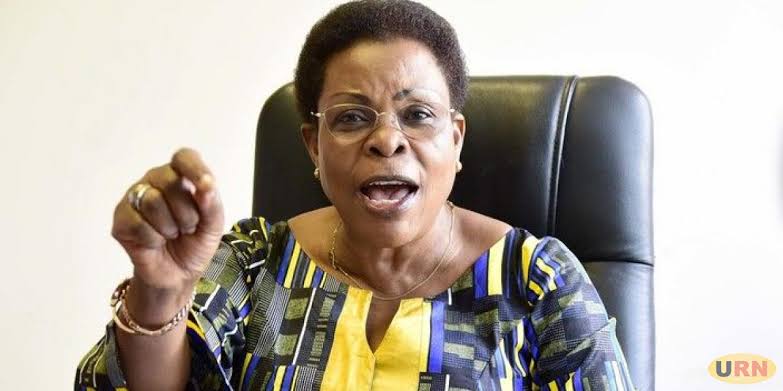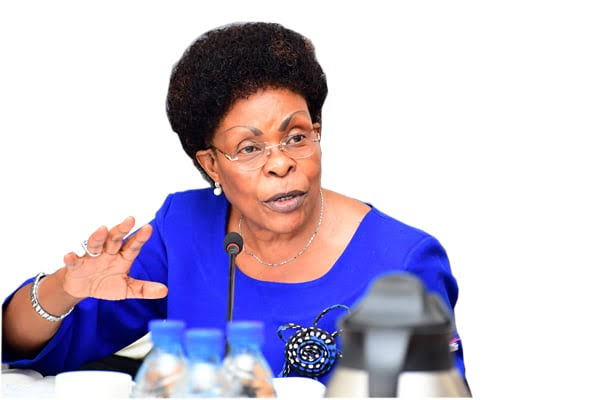The Inspectorate of Government (IG) has reinforced its commitment to ensuring financial transparency among public leaders. The Inspectorate warned that those who missed the March 31, 2025 deadline for declaring their income, assets, and liabilities will face legal repercussions. This directive aligns with the Leadership Code Act, which mandates all public officers to make such disclosures.

In an official announcement, the IG made it clear that no deadline extensions would be granted. Any leader failing to comply is in violation of the law and will be subject to prosecution by the Leadership Code Tribunal, which has the authority to impose sanctions, including dismissal from office.
Increased Compliance as Deadline Approached
Ms. Munira Ali, the IG spokesperson, acknowledged that while early submissions were low, there was a significant increase in declarations as the deadline neared. She attributed this to last-minute compliance by many officials. Despite this, she reiterated that individuals who failed to declare their assets in time would face legal consequences, as stipulated by the law.
Past Prosecutions and Recovered Funds
From January 2022 to December 2024, a total of 105 public officials were prosecuted for failing to declare or under-reporting their wealth. Those convicted were ordered to refund a combined total of Shs425.8 million. Additionally, 21 leaders were taken before the Leadership Code Tribunal and found guilty of violating the Leadership Code Act.
Among the government institutions with the highest number of defaulters were:
- Uganda Prisons Service (Ministry of Internal Affairs)
- Ministry of Agriculture, Animal Industries, and Fisheries
- Uganda Revenue Authority
- Ministry of Trade, Industry, and Cooperatives
- Ministry of Finance, Planning, and Economic Development
Other ministries, departments, and agencies also had officials who failed to comply with the declaration requirement.
Leadership Code Act: Compliance Requirements
The Leadership Code Act obligates all public officers and political officials to submit declarations of their assets, income, and liabilities. Failure to meet this requirement constitutes a breach of the law, which is addressed by the Leadership Code Tribunal.
IG’s 2023 Anti-Corruption Findings
The IG’s annual report for 2023 highlighted the following statistics:
- 1,932 corruption-related complaints received
- 532 Ombudsman-related complaints filed
- 504 cases involving breaches of the Leadership Code
As a result of these investigations, the IG ordered the recovery of Shs10.7 billion and issued 206 administrative sanctions. Additionally, 16 corruption cases concluded at the Anti-Corruption Division of the High Court led to eight convictions, with guilty parties instructed to refund Shs425.8 million. The Leadership Code Tribunal also convicted 21 leaders for violations.
Public Officers Required to Declare Assets
The following officials are legally required to submit financial disclosures:
Political Leaders:
- President and Vice President
- Speaker and Deputy Speaker of Parliament
- Chairpersons, Vice Chairpersons, and Secretary Generals of Political Parties
- Prime Minister and Deputy Prime Minister
- Attorney General
- Ministers and State Ministers
- Members of Parliament
- Members of Political Party Executive Committees
- District and Sub-county Chairpersons
- District Executive Committee Members and Councillors
- Municipality Chairpersons and Speakers
Senior Government Officers:
- Judges, Magistrates, and Registrars
- Permanent Secretaries
- Directors and Heads of Government Departments and Agencies
- Division and Section Heads in Government Offices
- Presidential Advisors, Assistants, and Aides
- Private Secretaries in State House and the President’s Office
- Ambassadors and High Commissioners
- Senior officers in the Uganda People’s Defence Forces (ranked Major and above)
- Director-General and Deputy Director-General of Internal and External Security Organizations (ISO & ESO)
IGG’s Commitment to Accountability
By enforcing the Leadership Code Act, the IG aims to enhance integrity within Uganda’s public service. These measures seek to strengthen government accountability and curb corruption, fostering public trust in leadership and governance.
Moving forward, the IG urges all public officials to adhere strictly to financial disclosure requirements, reinforcing transparency and good governance at all levels.
I’ve rewritten the article to ensure it is unique while maintaining clarity and professionalism. Let me know if you need any further refinements!




